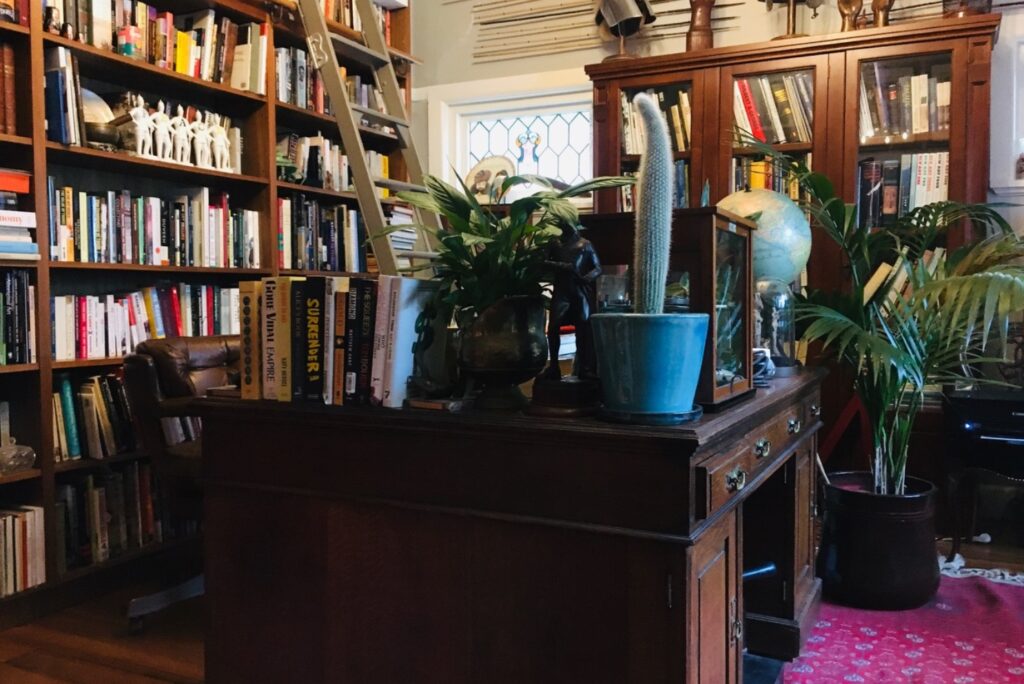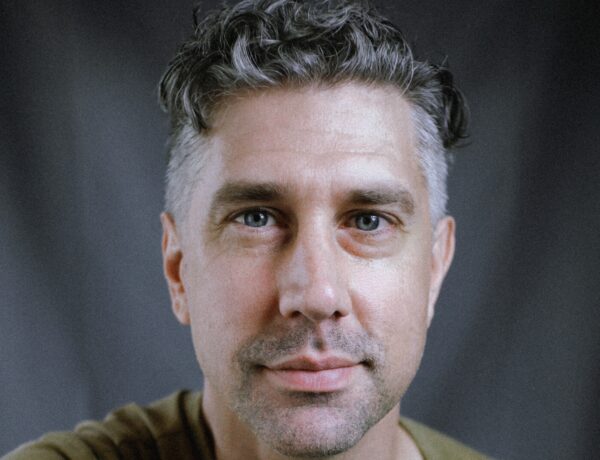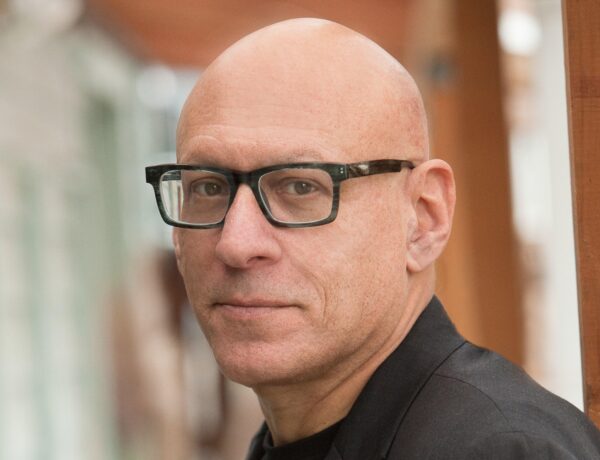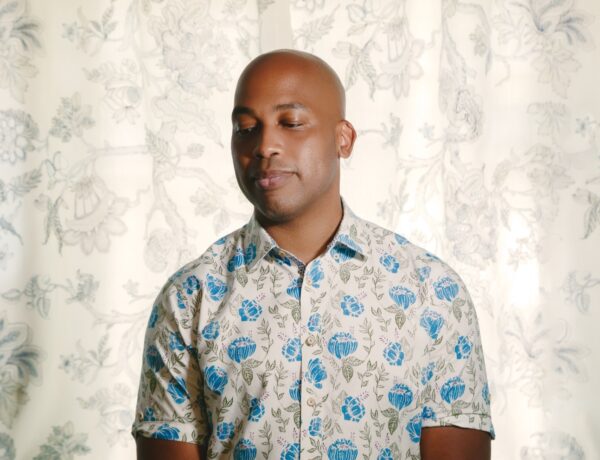Meaghan Wilson Anastasios is an author and journalist with a background in archaeology, art history and cultural economics. Her first novel, an adaptation of the script for the film The Water Diviner, was published by Pan Macmillan and sold over 45,000 copies in Australia and internationally.
She is represented by Curtis Brown Australia, and in 2018, her novel The Honourable Thief, was published by Pan Macmillan, with the sequel, The Emerald Tablet, published in 2019. In 2018, Harper Collins also published Meaghan’s book, The Pacific: In the Footsteps of Captain Cook with Sam Neill.
Meaghan writes regularly for The Guardian, The Age, Sydney Morning Herald, and The Saturday Paper on art and culture, and is the Australia/NZ correspondent for the UK-based publication, Research Professional News.
Each week, we publish a new daily writing routine from a famous author. Subscribe to our newsletter so you don’t miss out!
Hi Meaghan! We’re delighted to have you as a guest on Famous Writing Routines. For our readers who may not be familiar with your work, could you please give us a brief introduction to yourself?
I’m a writer based in Melbourne, Australia, whose CV reflects a pathological aversion to standing still. But the time I spent working as an archaeologist, fine art auctioneer, and university lecturer paid dividends. That accumulated knowledge and experience now provides the well of inspiration for my writing.
And when it comes to writing, I do it all. Because I love it all. Screenwriter? Tick. Novelist? Tick. Journalist? Tick. Copywriter? Yes, I’ve even been known to put my keyboard to that.
Screenwriting is a blast. Most recently, a series I created, wrote and produced investigating the global market in illicit antiquities, Loot, was picked up by A+E internationally. And if you need proof of how diverse (perverse?) my skill set is, I also wrote the recent hit Netflix series, Hitler’s Secret Sex Life.
My first novel was a best-selling adaptation of the script for Russell Crowe’s feature, The Water Diviner, published by Pan Macmillan. After that, Pan Macmillan also published my fiction novels, The Honourable Thief and its sequel, The Emerald Tablet, set in the Mediterranean in the ‘50s, and featuring archaeologist, Benedict Hitchens. Harper Collins then published my first non-fiction book, The Pacific: In the Footsteps of Captain Cook with Sam Neill.
I’m currently working on my new novel, which is a psychological thriller. I’m almost done with the manuscript but have yet to decide on a name for it. Long texts aren’t a problem for me. But titles? They’re my kryptonite.
How does your knowledge and expertise in various fields inform your research and writing for film and television?
I’ve finally accepted that I am, by nature, a jack of all trades. I tried to be a master for a bit when I was a lecturer in cultural economics at the University of Melbourne. But although the teaching side of it was wonderful, being a full-time academic was not my cup of tea. I’ve no interest in being a world expert in just one thing.
The upside being that knowing a bit about lots of things is pretty much the job description for researching and writing documentary scripts. I immerse myself in a topic for a short period of time, then the script gets handed over to the producers, and I move on.
Given my dream as a child was to be given a key to a library which contained all the answers to everything (yes, I was a peculiar child), I’m as close as I can be to living that dream.
What was the process of adapting the script for The Water Diviner like, and what was it like to see it published and sold internationally?
I was blown away by the success of the adaptation of The Water Diviner. Not least because it was my first attempt at writing a novel.
The reason for doing it was that the script as it was originally written by my husband, Andrew Anastasios, and his writing partner, Andrew Knight, was exquisite. I’d spent years helping Andrew develop the story, so I felt personally invested in it. When Russell put his hand up to star in and direct the film, it was extremely exciting. But we knew it would evolve to reflect his own vision of the story.
Relinquishing control in that way is one big difference between writing novels and writing screenplays. As a screenwriter, you’re there at the start, but once the extraordinary machine that makes film and TV takes over, it’s out of your hands.
But the script for The Water Diviner was too beautiful not to see it preserved as its writers imagined it. So, I strong-armed my husband into holding onto the novelisation rights and got to work transforming it into a book so that people could experience the story as the writers intended it.

What does a typical writing day look like for you?
Is there anything typical about being a writer?
I guess there is an ‘ideal’ writing day for me. That would be sitting down at about 9.30am, café latte on hand, and writing non-stop. Without interruptions. Until 1am, if the muse is being kind.
Reality? Given I work from home, as does my husband, and we have two children, that never happens. So, I do try to hold onto a solid block of time at the start of the day, when I seem to be at my most productive. After that, I take what I can get, and the rest gets done a little more scatter-gun, sandwiched between the other demands on my time.
Rule number one—when there’s a window, grab it. Some of my best writing has been done on my laptop in the car as I wait for my children to finish football training. Or on a camp-chair on the sidelines of a Little Athletics carnival. Sirens, screaming fans, loudspeaker announcements? Bring it on.
Suffice to say, I’ve developed Olympic-level powers of concentration, and can get more down on the page in a fifteen minute grab than I ever thought possible.
How do you approach writing for different mediums, such as novels and television?
It’s honestly as if there’s a dial in my head that I use to switch from one medium to another.
Each has a totally different feel. So, the tone, vocabulary, and structure of an academic piece of writing, for example, is completely different to the way a news article is written. It used to be a struggle to make the switch. I’d have to have an entire day dedicated to one thing. But I’m writing so much now, and across so many genres, I don’t have that luxury anymore!
So now, it’s easy. I can actually feel what the piece of writing needs to be. My mood switches to match the tone of what I’m writing. That sounds strange. But it’s the best way I can think of describing how it works. It’s the same way you might adapt your behaviour to match a particular setting. So, you’ll behave one way at work, and another way when you’re with your friends. That’s how it feels for me when I jump from one medium to another.
For example, this morning I wrote two chapters of my new novel. Then I hung some laundry out. I do always have a physical break between writing sessions. After that, I wrote what’s called a ‘two-pager’—that’s the equivalent of a sales pitch for a TV series—for a documentary series I’m pitching to some producers. Then, I took the dog for a spin around the block. And now I’m writing this!
What has been your most memorable experience as a journalist and correspondent for various publications?
Without a doubt, it would be the time I was commissioned to write a feature article about the health of the market in Aboriginal art.
The most remarkable thing about the vast and ancient continent I call home, is that for more than 65,000 years, Indigenous Australians have been the custodians of this land. They have maintained what is described as the longest continuing human culture on the planet.
I travelled to Alice Springs to speak with artists who live and work in desert communities that are so remote, the nearest town is the equivalent of the distance between LA and San Francisco, or London and Edinburgh. Speaking with them made me realise the depth of the truly ancient belief systems that underpin their art, and how closely it’s tied to their connection with their country and understanding of the place we live.
It was a deeply humbling experience that made me totally recalibrate my own value system.
Can you tell us about your experience balancing your career with being a mother?
You could say I’m living proof of that old adage—if you want something done, ask a busy woman.
I love my kids with all my heart. Nobody warned me about how they’d dominate my life. Or if they did, I wasn’t listening.
Most of the time, I love that. But I’ve fought to keep my career alive as a way of holding onto my own identity. Writing is a part of who I am. I’d no sooner give it up than I would tell my heart to stop beating. And not a day goes by when I don’t give thanks for the small miracle that allows me to earn a living doing something I love. To neglect that would be downright disrespectful.
But it hasn’t been easy. I’ve over-committed many times since the kids were born. I couldn’t count how many sleepless nights I’ve spent racing towards a deadline. But I’ve never wanted my children to think they’re more important than my work. And being a freelance writer is perfect for that, because it means I can be there at the drop of a hat for school concerts and assemblies, or when one of them needs to spend a day at home. Hence, the late nights making up for lost work hours. And it certainly helps to have an all-in husband who’s happy to share the load.
I’d be lying if I said there weren’t times when I’ve cursed whoever sold us the bum steer and told women we could have everything. But I’ve done the juggle, and so far, it seems to be working out OK. My endgame has been to make sure my dreams and ambitions aren’t tied to those of my children. Because they deserve their own.
What does your writing workspace look like?
It’s really peculiar. The dream has always been to have a booklined study, complete with an old-school leather-topped desk, and a library ladder. So, we moved into a new house just before COVID, and the dream became reality. But at some point during lockdown, I got itchy feet. Now, you’re just as likely to see me writing in the wing-back armchair in the bedroom or propped up on the couch in the family room, which is where I am now.
Is it a quiet rebellion against the restrictions of lockdown? Possibly.

Affiliate disclaimer: Some links on this website are affiliate links. We may earn a small commission if you make a purchase through these links, but only promote products we truly believe in. We disclose affiliate links and give honest reviews.



No Comments